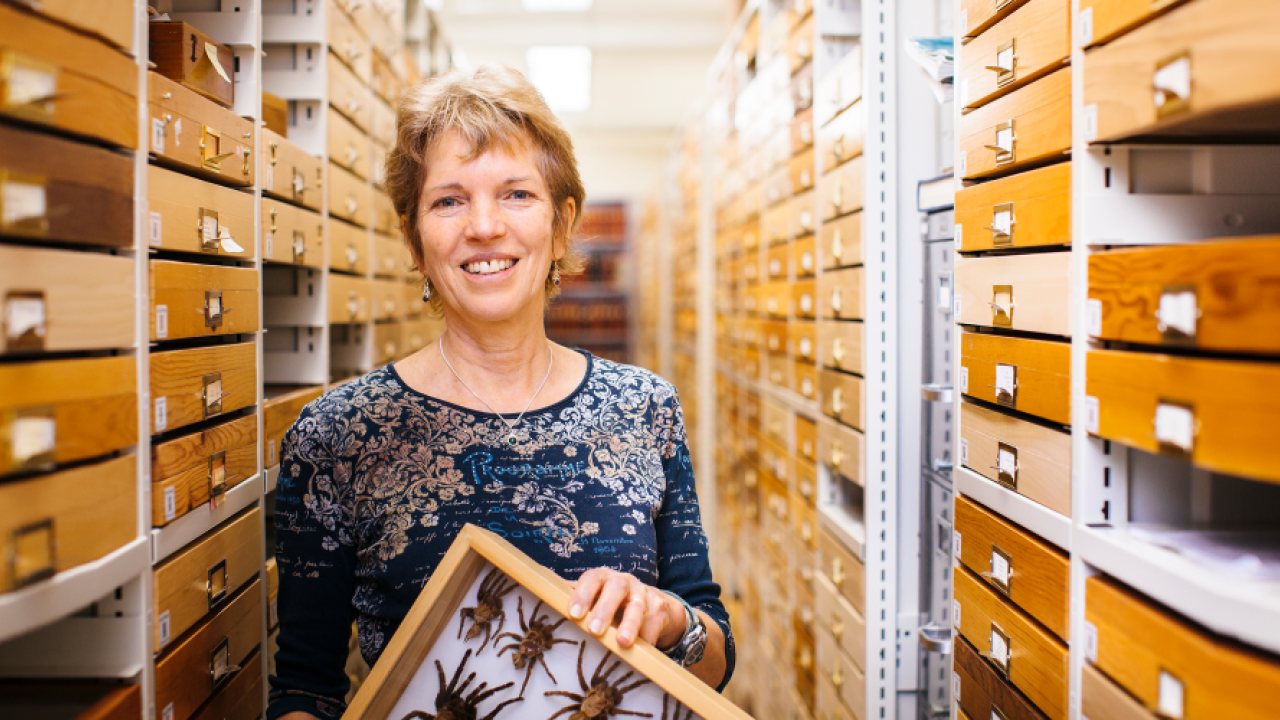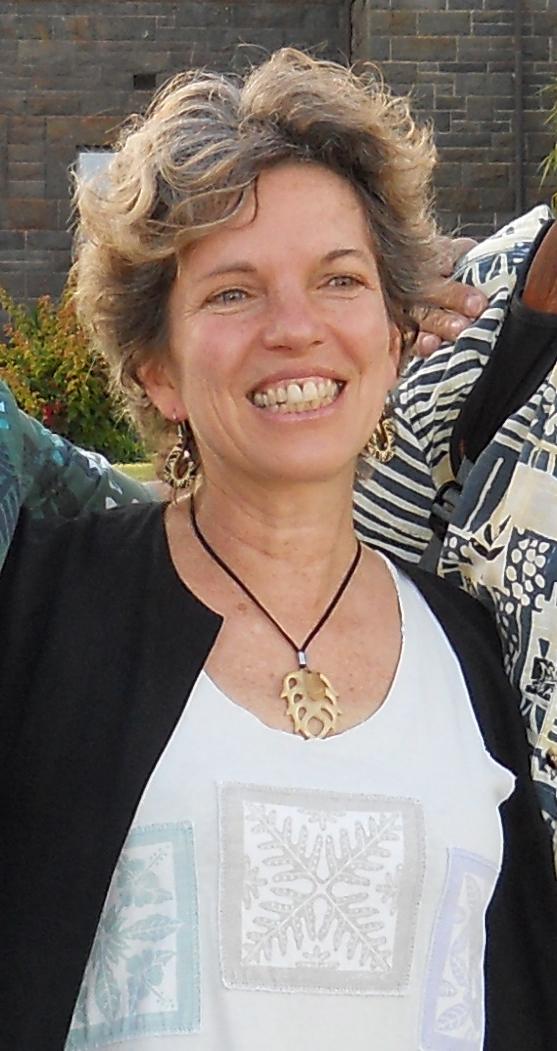
Arachnid Expert Rosemary Gillespie to Give Seminar on Adaptive Radiation
UC Berkeley Professor Is President of the International Society of Arachnology.

UC Berkeley professor Rosemary Gillespie, an evolutionary biologist who discovered an adaptive radiation of Tetragnatha spiders and went on to work on the systematics and evolutionary ecology of the lineage, will be the next UC Davis Department of Entomology and Nematology seminar speaker.
Gillespie will speak on "Adaptive Radiation: The Interplay of Isolation and Ecological Associations in Shaping Diversity" at 12:10 p.m., Wednesday, Oct. 22 in 122 Briggs. It also will be on Zoom. The Zoom link: https://ucdavis.zoom.us/j/95882849672.
She is a professor of Environmental Science, Policy and Management, Division of Insect Biology.
"Adaptive radiation is one of the key drivers of species diversity, yet the mechanism through which it is achieved, and the outcome of the process, are largely unknown," Gillespie writes in her abstract. "In many lineages, initial divergence results from environmental or sexual selection leading to divergence of species between environments and subsequent secondary contact. In other lineages, initial reproductive isolation may be achieved without divergent selection; here, ecological niche divergence can develop as a result of interactions between close relatives during secondary contact."
"The Hawaiian archipelago--in which each island provides a snapshot in time of the evolutionary process--is one system that can offer insights into the processes of adaptive radiation, allowing the early stages of radiation to be studied in real time," she continued. "I identify lineages in which the abiotic environment appears to play the dominant role in adaptive diversification, with repeated and convergent evolution of sets of taxa adapted to similar sets of environmental conditions. In contrast, divergence in other lineages appears to be the result of character displacement associated with direct interaction between close relatives, leading to convergent evolution of niche-specialized ecomorphs within a given environment. I will discuss the importance of differentiating between patterns to understand the processes that underpin adaptive radiation."
Born in Scotland
Born in Scotland, she received her bachelor of science degree in zoology from Edinburgh University in 1980 and her doctorate in zoology in 1986 from the University of Tennessee, where she studied the behavioral ecology of spiders. She then worked with the University of the South, Sewanee, Tenn., before accepting a position in 1987 as a postdoctoral researcher at the University of Hawaii. She advanced to assistant professor of zoology and a researcher in the Hawaiian Evolutionary Biology Program.
It was during her first year in Hawaii that she discovered an adaptive radiation of Tetragnatha spiders and went on to work on the systematics and evolutionary ecology of the lineage. In 1999, she joined the UC Berkeley faculty, where she continues to focus her research on the islands of the Pacific, using islands of known age and isolation to assess the combined temporal and spatial dimension of biogeography and determine patterns of diversification, adaptive radiation, and associated community assembly and conservation challenges.
Gillespie is a member of the American Academy of Arts and Sciences and is a former president of the American Genetics Association, the International Biogeography Society, the American Arachnological Society, and the International Society of Arachnology. She led "Exploring California Biodiversity" (2003-2016), a National Science Foundation (NSF)-funded museum and field-based outreach program. She received NSF's Presidential Award for Excellence in Science, Mathematics, and Engineering Mentoring in November 2005.
For any Zoom technical issues, contact seminar coordinator Marshall McMunn, assistant professor, at msmcmunn@ucdavis.edu.
